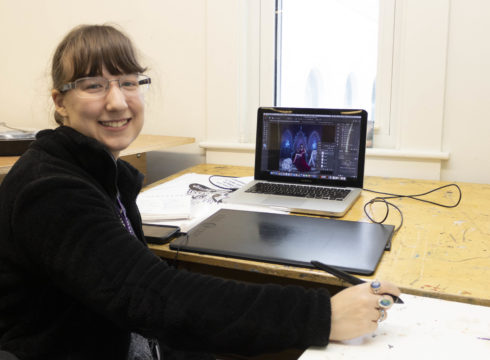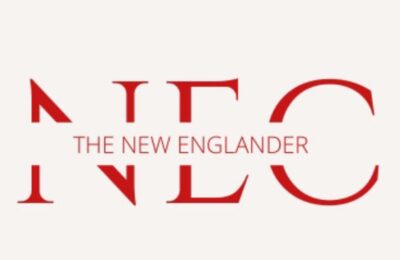The Diversity of Art and Design Careers

While many art majors aspire to careers in creative fields, others will find success in related careers within the business world. Careers for art and design majors include work in media, marketing, public relations, communications, animation, and education.
The transferable skills learned by liberal arts and fine arts students at New England College qualify them for positions in these fields. Those skills include communication, reasoning, promoting ideas, and working within a content-driven digital world. Art students also learn about creative problem-solving, innovation, and fostering constructive peer critique.
Programs Offered by NEC
New England College offers 10 undergraduate art majors through its art and design degree programs. All focus on supporting students in defining their artistic voice, whether they want to work as fine artists, digital designers, photographers, or creative writers.
The NEC programs include undergraduate degrees in:
- Animation
- Art
- Comic Arts
- Creative Writing
- Fine Arts
- Game and Digital Media Design
- Graphic and Communication Design
- Illustration
- Photography
- Theatre
New England College also offers graduate degrees in Creative Writing and Visual Arts.
Alternative Careers for Art Majors
Liberal arts and fine arts majors may not think they will learn skills that make them attractive job candidates in the corporate world. But just the opposite is true. The skills learned in an undergraduate arts program can be applied across many attractive career options.
However, It should first be noted that most careers for art majors involve working in the arts or art education. According to a survey of arts major graduates as reported by Petersen’s, about 70% of graduates worked in an art-related field. The most popular careers were arts educators, designers, fine artists, musicians, and writers/authors/editors.
However, for those who wish to take a different career path, it’s good to know many organizations value the type of skills learned by students in a liberal arts or fine arts program. They include the following.
- Communications: This includes corporate communications that require the use of various channels (websites, emails, social media) to communicate directly with consumers.
- Education: A liberal arts education provides the type of soft skills that are useful to teachers, including excellent communication and listening skills.
- Marketing: Marketing campaigns and product packaging are commercial-driven design projects, which of course differ from personal art projects. However, art majors bring creative skills to the table that help make marketing projects successful.
- Management: Liberal art majors can make excellent managers and leaders. Important management skills learned in a liberal arts program include critical thinking, problem-solving, collaboration, and communication.
The Value of Liberal Arts Majors
Employers often see liberal arts and fine arts graduates as having a set of soft skills that are more difficult to teach than hard skills. They find it easier to teach an employee the technical aspects of a job rather than to train them to develop critical thinking or problem-solving skills.
In a survey of employers conducted by the Association of American Colleges & Universities as part of its “Fulfilling the American Dream: Liberal Education and the Future of Work” report, employers listed the following skills as the most important college learning outcomes.
- Oral communication
- Critical thinking
- Ethical judgment
- Working effectively in teams
- Written communication
- Real-world application of skills and knowledge
In an article about the report, the Harvard Business Review noted employers also value new hires who demonstrate “innovation in response to rapid change,” which is why employers favor students with soft skills and internship experience over those with “narrow technical training.”
Whatever path an art major chooses, opportunities abound. Whether following their muse into a creative career or taking their skill set into a corporate environment—or a combination of both—art majors at New England College will find that their knowledge and skills can help them forge a strong career path.





